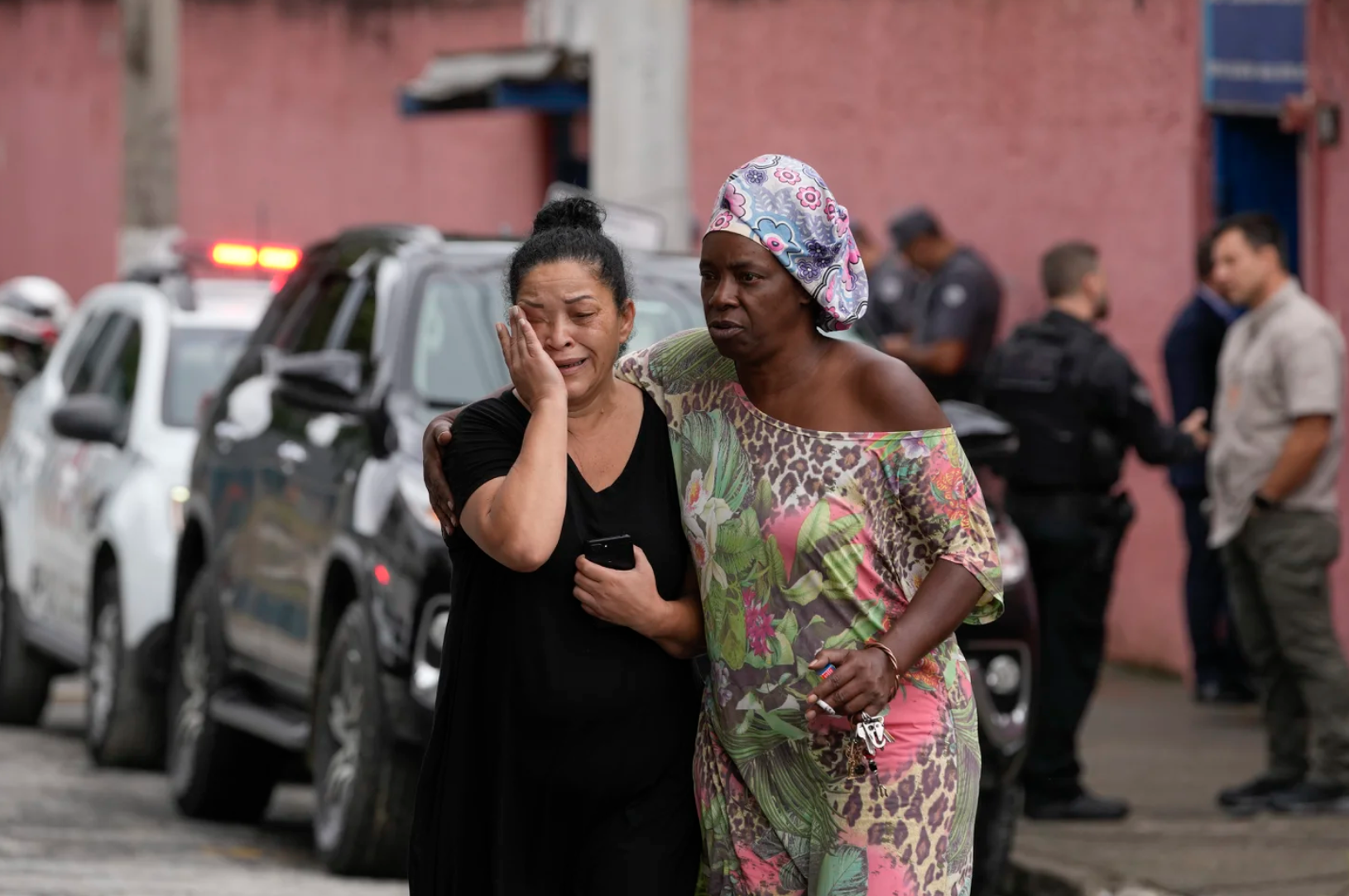The growing number of cases of violence in schools in Brazil highlights the powerlessness in which schools and the school community find themselves. The problem is multifaceted but one of its roots is the propagation – mainly online – of an ideology based on masculinity, individualism, and supposed superiority where the use of violence to achieve ideological goals is legitimized.
In 2023, two events shocked the country, but it is an emergent problem. From the early 2000s until April of this year, at least 24 attacks on schools have been recorded, with 12 occurring during 2022 and the first four months of 2023, as a report on school attacks in the country points out.
Two points should be highlighted here. First, violence in schools is not just any violence, it is part of what is called violent extremism and the ideological component is key. Second, the family is not the only institution responsible for education, and the school cannot focus only on academic training. Still, it must also be a place for the development of values.
In school violence, there is a strong connection with extremist ideological motivations and the attacks are planned. As stated by researcher Telma Vinha of the State University of Campinas, the attacks are not unexpected. The person who commits the acts, generally male, young, white, heterosexual, goes through a process of radicalization in which he is made to believe that he must seek personal fulfillment above all else and that his identity expression and ideas are superior to those of other people. It is this process of radicalization that can lead to violent extremism.
Masculinist, racist, supremacist, xenophobic, religious intolerance, and anti-democratic discourses permeate the thoughts and validate the behaviors of these radicalizing youth. These are discourses of hatred toward any minority group which, as they advance in the conquest of their rights, are perceived as threats by those who move in the environment promoting violent extremism.
There is in these young people a feeling of social injustice about themselves and also of lack of belonging and the school is sometimes associated with these feelings. Moreover, the school is an important institution in society, which gives visibility to the ideology it wants to promote, so it often becomes a target.
It is in the search for a solution to the problems they perceive as causing their feelings of social injustice and lack of belonging that young people can be induced to hate, especially those who are more vulnerable because they are part of an authoritarian family environment or have been victims of bullying. This phenomenon is enhanced by factors such as interpersonal relationships already contaminated by hate speech or by a political scenario that fosters the discrediting of institutions and the values of a democratic rule of law, among others.
A decade of radicalization
In Brazil, this radicalization cannot be dissociated from the advance of the far right. In 2013, the initial protests against the increase in bus fares soon gained other motivations, and groups more linked to the right grew stronger, such as the Movimento Brasil Livre (MBL). In the 2014 elections, under the climate of corruption scandals, hate speech began to be more explicit, especially against groups favored by the Workers’ Party government’s social policies, such as the black and indigenous population, with racial quotas in universities, and the lower class population, with Bolsa Família program. It is essential to highlight that institutional sexism was present during the mandate of former president Dilma Rousseff (2010 – 2016).
Under the defense of morality that could be corrupted by another leftist mandate, initiatives such as the School Without Party Movement, active between 2004 and 2019, have also gained visibility. According to Human Rights Watch, these initiatives have left a legacy of laws and threats to teachers from the supposed fight against “indoctrination”.
In 2014, the debate around “gender ideology” also emerged with force. Thus, the far right, embracing conservative agendas and anti-system sentiments, grew stronger and became an option for part of the population dissatisfied with the current scenario. The lack of regulation of the Internet and the appropriation of digital resources offered by the media and social networks have allowed the spread of extreme right-wing ideology.
Promoting peace through human rights education
To combat the culture of hatred and violence, it is necessary to act on the basis of what human rights education and the culture of peace suggest. As a public policy in Brazil, human rights education suggests that educating about, with, and for human rights is a way to achieve respect for differences and coexistence in a democratic environment, where all people live with dignity. The culture of peace, in turn, can be understood as a set of actions that recognizes and welcomes conflicts, seeking to transform them through dialogue and non-violence.
In schools, the promotion of coexistence in heterogeneous spaces is fundamental for the construction of strategies that eradicate and prevent the radicalization of young people. Seeking solutions to violence in schools through militarization or security mechanisms such as in the U.S. is simplistic and unsustainable.
Peacebuilding based on human rights and committed to welcoming conflicts, managing emotions, and dialogue, has a better chance of lasting because it puts people at the center of the analysis and the search for solutions. And the school, if supported by the state, families, and society, has the potential to be a place of refuge rather than a target.
*This text is part of the project “(Re)connecting: bringing people together to overcome violence in schools”, carried out by the Aurora Institute, with institutional support from L21. To support the initiative, access: https://apoia.se/reconectar_escolas
Translated from Spanish by Janaína Ruviaro da Silva











